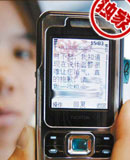2010年6月英语六级听力原文完整版(2)
Section B
Passage 1
The time is 9 o’clock and this is Marian Snow with the news。
The German authorities are sending investigators to discover the cause of the plane crash late yesterday on the island of Tenerife. The plane, a Boeing 737, taking German holiday makers to the island crashed into a hillside as it circled while preparing to land. The plane was carrying 180 passengers. It’s thought there are no survivors. Rescue workers were at the scene。
The British industrialist James Louis, held by kidnapper in central Africa for the past 8 months, was released unharmed yesterday. The kidnappers had been demanding 1 million pounds for the release of Mr. Louis. The London Bank and their agents who had been negotiating with the kidnappers have not said whether any amount of money has been paid。
The 500 UK motors workers who had been on strike in High Town for the past 3 three weeks went back to work this morning. This follows successful talks between management and union representatives, which resulted in a new agreement on working hour and conditions. A spokesman for the management said they’d hope they could now get back to producing cars, and that they lost lots of money and orders over this dispute。
And finally the weather. After a code start, most of the country should be warm and sunny. But towards late afternoon, rain will spread from Scotland to cover most parts by midnight。
Questions 26 – 29 are based on the passage you have just heard。
26 What does the news say about the Boeing 737 plane?
27 What happened to British industrialist James Louis?
28 How did the 3-week strike in High Town end?
29 What kind of weather will be expected by midnight in most parts of the country?
Passage 2
Juan Louis, a junior geology major, decided to give an informative speech about how earthquakes occur. From his audience and analysis he learned that only 2 or 3 of his classmates knew much of anything about geology. Juan realized then that he must present his speech at an elementary level and with a minimum of scientific language. As he prepared the speech, Juan kept asking himself, “How can I make this clear and meaningful to someone who knows nothing about earthquakes or geological principles?” Since he was speaking in the Midwest, he decided to begin by noting that the most severe earthquake in American history took place not in California or Alaska but at New Madrid, Missouri in 1811. If such an earthquake happened today, it would be felt from the Rocky Mountains to the Atlantic Ocean and would flatten most of the cities in the Mississippi valley. That, he figured, should get his classmates’ attention. Throughout the body of the speech, Juan dealt only with the basic mechanics of the earthquakes, carefully avoid technical terms. He also prepared visual aids, diagramming photo line, so his classmates wouldn’t get confused. To be absolutely safe, Juan asked his roommate, who was not a geology major, to listen to the speech. “Stop me,” he said, “any time I say something you don’t understand。” Juan’s roommate stopped him four times. And at each spot, Juan worked out a way to make his point more clearly. Finally, he had a speech that was interesting and perfectly understandable to his audience。
Questions 30 – 32 are based on the passage you have just heard。
Q30 What did Juan Louis learn from the analysis of his audience?
Q31 How did Juan Louis start his speech?
Q32 What did Juan ask his roommate to do when he was making his trial speech?
Passage 3
Esperanto is an artificial language, designed to serve internationally as an auxiliary means of communication among speakers of different languages. It was created by Ludwig Lazar Zamenhof, a polish Jewish doctor specialized in eye diseases. Esperanto was first presented in 1887. An international movement was launched to promote its use. Despite arguments and disagreements, the movement has continued to flourish and has members in more than 80 countries. Esperanto is used internationally across language boundaries by at least 1 million people, particularly in specialized fields. It is used in personal contexts, on radio broadcasts and in a number of Its popularity has spread form Europe, both east and west, to such countries as Brazil and Japan. It is, however, in China that Esperanto has had its greatest impact. It is taught in universities and used in many translations, often in scientific or technological works. EL POPOLA CHINIO, which means from people’s China, it’s a monthly magazine in Esperanto and it’s read worldwide. Radio Beijing’s Esperanto program is the most popular program in Esperanto in the world. Esperanto vocabulary is drawn primarily from Latin, the Roman’s languages, English and German. Spelling is completely regular. A simple and consistent set of endings indicates grammatical functions of words. Thus for example, every noun ends in “o”, every adjective in “a”, and basic form of every verb in “i”. Esperanto also has a highly productive system of constructing new words from old ones。
Questions 33 – 35 are based on the passage you have just heard。
Q33 What does the speaker tell us about Esperanto?
Q34 What is said about the international movement to promote the use of Esperanto?
Q35 What does the speaker say about Esperanto in China?
Section C
George Herbert Mead said that humans are "talked into" humanity. He meant that we gain personal identity as we communicate with others. In the earliest years of our lives, our parents tell us who we are:"You're intelligent." "You're so strong."
We first see ourselves through the eyes of others. So their messages form important foundations of our self-concepts. Later, we interact with teachers, friends, romantic partners and coworkers who communicate their views of us. Thus, how we see ourselves reflects the views of us that others communicate。
The profound connection between identity and communication is dramatically evident in children who are deprived of human contact. Case studies of children who are isolated from others reveal that they lack a firm self-concept, and their mental and psychological development is severely hindered by lack of language。
Communications with others not only affects our sense of identity, but also directly influences our physical and emotional well-being. Consistently, research shows that communicating with others promotes health, whereas social isolation is linked to stress, disease, and early death。
People who lack close friends have greater levels of anxiety and depression than people who are close to others. A group of researchers reveal scores of studies that trace the relationship between health and interaction with others。
The conclusion was that social isolation is statistically as dangerous as high blood pressure, smoking and obesity. Many doctors and researchers believe that loneliness harms the immune system, making us more vulnerable to a range of miner and major illnesses。
特别说明:由于各方面情况的不断调整与变化,新浪网所提供的所有考试信息仅供参考,敬请考生以权威部门公布的正式信息为准。
网友评论
更多关于 四六级 作文 真题 的新闻
- 2010年6月英语六级复合式听写原文(昂立) 2010-06-19 17:54:49 新浪教育
- 2010年6月英语六级听力短对话解析(昂立) 2010-06-19 17:53:44 新浪教育
- 2010年6月英语六级听力长对话原文(昂立) 2010-06-19 17:52:27 新浪教育
- 2010年6月英语六级作文评析及范文(沪江) 2010-06-19 17:42:30 沪江英语
- 2010年6月英语六级听力短对话原文(昂立) 2010-06-19 17:37:53 新浪教育





